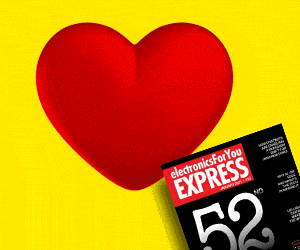Latest technologies like artificial intelligence, blockchain, chatbots, face recognition, robots, drones and software solutions are all contributing to the fight against the fast-spreading coronavirus that has caused havoc all over the world.
In the battle against novel coronavirus (Covid-19), emerging technologies have stood out by making immense contribution in an unexpected, creative and amazingly responsive way. Delivery drones, disinfecting robots, smart helmets, and thermal imaging cameras are all being deployed in the fight against Covid-19. Latest technologies are being used to predict and combat spread of the infectious disease. These technologies include artificial intelligence (AI), analytics software, chatbots, apps, telemedicine, blockchain, and advanced facial recognition software.
The better we can track the virus, the better we can fight it. Advanced AI has been used to help diagnose the disease and accelerate the development of a vaccine. Google’s DeepMind division has used its latest AI algorithms and computing power to understand the proteins that might make up the virus, and has published their findings to speed up the process of treatments. Several drug companies are also using AI-powered drug discovery platforms to search for possible treatments.
AI-based systems are being used to detect coronavirus infection via CT scans with 96 per cent accuracy. Portable lab-on-chip detection kits are helping medical teams on the ground to identify infected individuals for proper medical care quickly. These tools are helping remote areas with limited medical resources to immediately screen out suspected corona-virus-infected patients for further diagnosis and treatment.
Blockchain-powered services are helping hospitals to spend less time on administrative work and allocate staff to the frontlines. Blockchain platforms speed up claims processing and minimise the need for face-to-face contact amidst the coronavirus outbreak.
Chatbots are being used to share information and free online health consultation services. These can answer queries related to the virus such as symptoms, preventive measures and treatment procedures.
Software solutions that are transforming the healthcare industry include hospital management, mobile healthcare, telemedicine, wearables. Telemedicine enables remote monitoring and care for patients. It can provide necessary services for people infected with Covid-19. Mobile healthcare solutions empower healthcare providers and patients by creating a platform for interaction and medical care services.
Face recognition technology is being used in surveillance systems that can recognise people, even while they are wearing masks, with a relatively high degree of accuracy. The surveillance systems use facial recognition technology and temperature detection software to identify people who might have fever or are not wearing masks. Facial recognition technology has been integrated with thermal imaging to make fever-detection cameras.
Contactless temperature detection software, AI-powered non-contact infrared sensor systems, and smart helmets that can measure the temperature of anyone within five-metre radius can quickly detect a person who is suspected of having a fever. These are being deployed at stations, airports, schools, malls, community centres and other public places that have large gatherings.
Robots are being used to clean or sterilize hospitals, and perform basic diagnostic functions, to minimise the risk of cross-infection. The robots allow physicians to communicate with the patient via a screen, and are equipped with a stethoscope to help doctors take a person’s vitals while minimising exposure to the staff. They can deliver food and medicine to reduce the amount of human-to-human contact. Robots use ultraviolet light to autonomously kill bacteria and viruses in quarantine wards without human intervention.
Drones are being used for contactless medicine delivery, spraying disinfectant around the country, especially in quarantine zones. These transport medical samples and conduct thermal imaging. Drones are also deployed to check travelers’ temperatures and disposal of hospitals’ medical waste.







